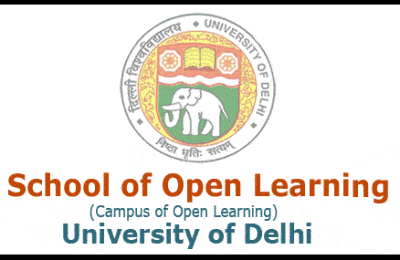An eight-month-old baby was allegedly run over by a University employee in the campus premises of Netaji Subhas University of Technology on 13th September around 9:30 a.m. While, many believe that the University took steps to cover up the incident, the students stand in solidarity with the parents of the child.
On the morning of 13th September, an eight-month-old baby was allegedly run over by a car in the Netaji Subhas University of Technology (NSUT) Campus in Dwarka. The incident took place when a university employee was trying to park their car in the ground where the cars are parked throughout the day. The infant, Anand, had been put to sleep on the grass, as is often done by the workers on the campus. The faculty member ran their vehicle over the sleeping infant.
The concerned employee, allegedly, rushed to go and mark their biometric attendance after hitting the baby instead of tending to him as a means of securing their alibi. They were called back to the site later after being informed of the seriousness of the issue and the poor condition of the baby they hurt.
Multiple versions of the incident have arisen, as it is suspected that the college administration tried to cover up the incident. While one report by the Millennium Post says that the eight-month-old fell to death from a staircase, Outlook reported that the eight-month-old baby had died after falling off a 2 feet concrete structure in the campus.
Outlook reported, “The MLC report stated the injuries were caused to the baby due to fall from height, the police said.”
However, as reported by NDTV, a senior police officer in Dwarka said, “The child was run over by a car reportedly driven by a (university) employee. We were informed about the incident after a Police Control Room call was received at Dwarka North from Vanketeshwar hospital, that an eight-month-old baby was brought dead there. We haven’t received any complaint in this matter yet”
“The body of the infant was sent for post-mortem on Friday and the reports are awaited. We have recorded the statement of his parents and other relatives. However, the parents have denied the allegations on the college employee,” added the police officer.
Seeing a lack of support from the faculty, students and alumni of NSUT conducted their own investigation to connect the missing pieces, asking around the guards and some other authorities. As a result, they got a tip and found the mother. They asked the victim’s mother to come forward and speak the truth, post which she changed the statements.
The victim’s mother, Mrs. Satyadevi, in a video circulated, changed her statement on 16th September saying, “Jo pehle bata diya who galat hai uske liye maafi maangte hai. Bachhe ko khilaye pilaye aur sula diye hum. Ek gaadi aaya who humare bacche ke paas gaya. Hum nhi dekhe, ek dusra aadmi chillaya aur bola bachha uthayi. Kon tha who aadmi gaadiwala woh to hum nahi dekhe. Phir humare bacche ko kaha kaha le gayawoh hum nahi dekhe. (what I had said earlier was wrong and I apologise for that. I fed the baby and put him to sleep. A car then came near the baby. I didn’t see; some other man shouted and asked me to take the baby away. I didn’t see who the person in the car. I didn’t see where they took my baby afterward) ” Earlier, as reported by Outlook, the parents had denied these rumours and stated that the infant died due to falling off a 2-ft concrete structure
She added “hum maafi maangte hai (about the previous statements). Hum garib aadmi hai isiliye darr gaye hum kaha se kya karenge. Humko paise ka toh pata nahi hai. (I apologise. I am poor so I was afraid of how to deal with this. I am not aware of any money dealings)”
A security guard who claimed to be an eyewitness, saying that he saw the entire accident, was fired on that day itself. The parents of the child were also fired. It is speculated this was done to keep them silent. The students of NSUT found the parents held inside the Vice Chancellor’s house.
The students staged a protest in the campus premises demanding justice for the baby. They wore black to protest against the administration and organised a candle march on the campus. A faculty member, identified as the Dean of Student Welfare, was also caught on tape manhandling students.
“The administration pressurised the students not to take part in any protest because doing so would have serious action taken against them” said a student who did not wish to be named.
“Technically she (victim’s mother) was manipulated, way before anything, by the college administration.I’m highly impressed and really appreciate that everybody stood for the cause and everyone did their part of speaking up to these ruthless people”, said a fourth year student involved in the students’ movement.
On the other hand, Professor Sujata Senger, Dean of Academics, said to ABP News, “If we had blocked or stopped police from investigating in the campus, then it would have been our fault. I don’t think anything of this sort has happened. About the security guard being sacked, it is done by the agency itself. We don’t have any role in that.”
Video Credits: Students from NSUT
Feature Image Credits: Zee News
Satviki Sanjay
[email protected]













